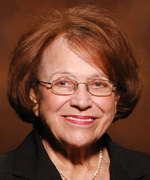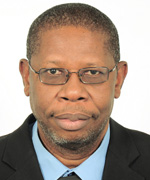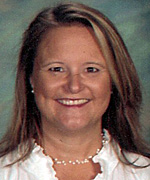The opportunity to nominate and vote for candidates in the IRA election is open to every individual member of the Association. Below is information about each candidate for the 2013 election. Members are encouraged to review the information on each candidate carefully, discuss the merits of the candidates with other members, and then make the decision and vote.
Ballots will be sent in mid-December 2012, and ballots must reach the independent firm of Intelliscan, Inc., by 5:00 p.m. on February 11, 2013.
Online Voting Makes It Easy
The 2013 IRA election is being conducted primarily online. This means that active individual IRA members with valid e-mail addresses will receive an e-mail message with a link to their online ballot and will vote online.
IRA members who do not have valid e-mail addresses will receive a paper ballot by regular mail and can choose to return the paper ballot or to vote online. Beginning in mid-December these members can vote online by visiting /, clicking the “2013 Online Election Ballot” link, and then entering the ballot control number found on their paper ballot.
Any questions about online voting can be discussed with Intelliscan, Inc. staff at +1-610-935-6173 or iravoting@intelliscaninc.net. Members can contact IRA customer service staff at 1-800-336-7323 (option “1”) or customerservice@/ with any questions related to their IRA membership.
Ballot Count Procedures
The 2013 election will be handled by the independent firm of Intelliscan, Inc., whose staff members oversee the distribution of electronic ballots, the mailing of paper ballots, receive the returned ballots, supervise and observe the opening of returned ballots, count the ballots electronically, and certify the results.
When paper ballots are incompletely marked, but there is a clear indication of the intended vote, the appropriate vote will be counted. Ballots with fewer than the maximum number of votes are valid, as the computer will count each vote. Ballots on which more than the permissible number of votes has been marked are rejected by the computer and not recorded in the count. Mutilated ballots are separated out to be repaired or remarked; ballots with write-in votes are also kept for a hand tally of the written names.
Campaigning Policy
As a professional organization we disallow campaigning for office by the candidates, by other individuals, or by councils or affiliates. All candidates for this election have agreed to this policy. If you received campaign materials or solicitations, please keep this in mind as you vote.
Candidates for Vice President
 Maryann Manning
Maryann Manning
Distinguished Professor Emerita, Literacy, The University of Alabama at Birmingham (UAB)
Education: Ed.D., University of Nebraska; M.Ed., Wayne State College; BFA, University of South Dakota
Contributions to IRA: IRA Board of Directors (2006–2009); Recipient of the IRA Special Service Award (2005); Co-chair, Southeastern Regional Conferences (1983 and 1994); IRA Representative on NCATE Board of Examiners (1995–2007); NCATE Advisory Committee (1985–2005); Member of numerous IRA committees, including: Professional Standards and Ethics, Administrators and Reading, and Infancy through Pre-School Reading; Frequent presenter at IRA conventions, World Congresses, European, Asian, State, Regional and Local Conferences; President, Birmingham Area Reading Council; Research Chair, Alabama Reading Council (1984–present); International Volunteer.
Contributions to the Profession: K–12 Classroom Teacher in Nebraska; Reading Professor, University of Nebraska and UAB; Adjunct Professor, Chugoku College, Japan (1999–present); Reading Editor, Teaching K–8 (1981–2006); Author and co-author of professional books and book chapters, including: The Best Reading Block Ever (Scholastic); Subskills vs. Holistic (Erlbaum); Scientific Reading Assessment (Heinemann); Theme Immersion (Heinemann); Revisiting Silent Reading (IRA) chapter; Examining DIBELS (Heinemann) chapter; Selected articles in the following journals: The Reading Teacher; Research in Childhood Education, Young Children.
Statement of Philosophy: As the world’s leading organization of literacy professionals, the International Reading Association and its members continuously promote excellence in reading instruction at both the national and international levels. In recent years, IRA has worked diligently to integrate technology, build memberships, expand partnerships, disseminate literacy knowledge, promote advocacy, and offer outstanding annual conventions. The Association is at the cutting edge in addressing educational issues. IRA continues to promote literacy at the international levels and has a number of new international projects, including the Association’s work in Bangladesh. I am dedicated to supporting IRA in increasing the dissemination of research, theory, and practice for reading teachers, both here and abroad. My primary interests include: growing professional partnerships and extending our efforts as a global community. I will ensure that the Association continues to be a resource for all of its councils and affiliates. The strength of IRA is its members and I am a longtime member. I will work to promote the Association’s strategic goals, while continually advancing literacy in the 21st century.
 Lori Jamison Rog
Lori Jamison Rog
Teacher and Educational Consultant, Toronto, Canada
Education: B.Ed., M.Ed., University of Regina
Contributions to IRA: Board of Directors (1999–2002), numerous committees including Chair of International Development in North America and board liaison to European International Development Committee; volunteer for Language to Literacy in Belize; Founding member of Canadian Network of IRA Councils and recipient of CNIRAC Service Award; Saskatchewan Reading Council IRA Coordinator, Conference Chair, Journal Editor, Local Council President and recipient of Honorary Lifetime Membership. Featured speaker at international, state, and provincial conferences.
Contributions to the Profession: Classroom teacher, district K–12 literacy consultant, university instructor, reading assessment specialist (Department of Education). Author of numerous curriculum documents, articles, teachers’ guides and professional books, including: Read, Write, Play, Learn: Literacy Instruction in Today’s Kindergarten (IRA 2011), Guiding Readers (Pembroke/Stenhouse 2012), Marvelous Minilessons for Teaching Beginning Writing, K–3 (IRA 2007), and Intermediate Writing 4–6 (IRA 2010).
Statement of Philosophy: As the premier organization of literacy professionals in the world, IRA is uniquely positioned to impact research and practice, and to support educators and scholars in their quest to improve literacy and literacy instruction around the globe. I believe that: 1. It’s time to take a stand. IRA must use its resources and expertise to carefully examine educational policies and mandates, to support those that are sound, and to speak out against those that are not. Furthermore, we must offer our considerable resources to influence policy decisions for the benefit of learners, teachers, and society. 2. IRA must play a leading role in bridging the gap between current research and classroom practices. Teachers are pulled in many directions and often lack access to the latest research or the resources to navigate it. Through networking, print publications, social media, and professional events, IRA can explore creative ways to make research accessible to teachers and to support ongoing professional development that is current, evidence-based, and pedagogically sound. 3. Councils—local, state, provincial, national affiliate—are the foundation of IRA. As we continue to build the association, we need to find ways to support and strengthen councils. For many members, a council is their first and principal contact with IRA. IRA councils and committees must provide leadership opportunities for educators at different career stages. As well, we need to find the means to support ongoing international networks and events that enable council leaders to connect with and learn from one another for the benefit of all.
Candidates for Members of the Board of Directors 2013–2016
 Arua Arua
Arua Arua
Associate Professor and Chair, Department of English, University of Botswana, Gaborone, Botswana
Education: BA (1980), MA (ESL) (1984), Ph.D. (1997) Obafemi Awolowo University, Nigeria
Contributions to IRA: President, Swaziland Reading Association (1995–1997); Member, International Literacy Project Grants Committee (1998–1999); Chair, International Development in Africa Committee (2000–2003); Member, International Development Coordinating Committee (2000–2003); Ex-officio mem¬ber, Reading Association of Botswana (2005 to date). Chief Organizer of 2nd (2001) and LOC member of 7th (2011) Pan-African Conference on Reading for All. Presented at 8th IRA World Congress (2000), IRA Annual Conventions (1995, 2001); Pan-African Reading Conferences (1999, 2001, 2003, 2005, 2007, 2011—Also Resource person at Leadership Workshop—2011); Reading Association of South Africa, 2004, 2006; Reading Association of Nigeria (1989, 1991, 1993).
Contributions to the Profession: More than 45 sole and joint publications, including “The Reading Behavior of Junior Secondary Students during School Holidays in Botswana,” Journal of Adult & Adolescent Literacy, (2011) 54; Improving the Quality of Literacy Learning in the Content Areas—Situational Analysis of Secondary Level Education in Botswana (2005); Reading for All in Africa: Building Communities where Literacy Thrives (2003); Classroom Interaction in English and Igbo Reading Classes in some Selected Primary Schools in South Eastern Nigeria (Elva Knight research report) (1995); “Lexical Density, New Word Density, and the Readability and Sequencing of Reading Materials in an ESL Course Series.” Literacy and Reading in Nigeria (1993) 6.
Statement of Philosophy: I believe that IRA should privilege inclusiveness and multiple perspectives in order to achieve its strategic goals. IRA can do this by partnering with Ministries of Education world-wide to develop new and flexible professional development models that can adapt to multiple contexts; enriching research findings on literacy with data from contexts that had hitherto been excluded; and creating a platform that ensures that one candidate from affiliates and councils outside North America is elected to the Board of Directors every year.
 Tom Bean
Tom Bean
Professor, Teaching and Learning Department, College of Education, University of Nevada, Las Vegas, Las Vegas, Nevada
Education: Ph.D. (Secondary Education/Reading), Arizona State University, 1976; M.A. (Reading & English Education), Southern Oregon State University, 1974; Basic Teaching Credential (English), University of Hawaii at Hilo, 1973; B.A. (English), University of Hawaii at Manoa, 1969; Diploma, Punahou School, Honolulu, Hawaii, 1965.
Contributions to IRA: Co-Editor, Journal of Adolescent & Adult Literacy (completed last volume this past May); Member, Adolescent Literacy Task Force (current); Member, IRA Publications Committee; Co-Editor, Online issue of RRQ, RT, and JAAL (summer 2012).
Contributions to the Profession: Invited Journal Articles: Bean, T.W., & O’Brien, D. (in press). Past and future directions in content area literacy: A Conversation between two experts (Column Editor: Zhihui Fang). Journal of Adolescent & Adult Literacy. Books: Bean, T.W., Dunkerly-Bean, J.M., & Harper, H. (in press). Teaching Young Adult Literature: Developing World Citizens. Thousand Oaks, CA: SAGE; Guzzetti, B., & Bean, T.W. (Eds.). (publication date 2013). Adolescent literacies and the gendered self: (Re)constructing identities through multimodal literacy practices. New York, NY: Routledge. Book Chapters: Bean, T.W., & Harper, H. (2011). The context of English Language Arts learning: The high school years. In D. Fisher & D. Lapp (Eds.), Handbook of Research on Teaching the English Language Arts (3rd ed.), (pp. 60–68). Mahwah, NJ: Erlbaum/Taylor Francis.
Statement of Philosophy: I support IRA’s ongoing initiatives in three critical areas: 1) Professional Development; 2) Technology Integration, and 3) Support for New Teachers, particularly through online resources like ReadWriteThink.
 Bernadette Dwyer
Bernadette Dwyer
Lecturer in Literacy Studies in Education, St. Patrick’s College, Dublin, Ireland
Education: B.Ed. (NUI), MSc (DCU), Ph.D. (University of Nottingham)
Contributions to IRA: Bernadette was president of the Reading Association of Ireland (2005–2006) and is a current executive committee member. She is a member of the IRA Technology, Communications, and Literacy Committee (2012–2013). She has collaborated and researched with international colleagues and presented at conferences, such as IRA, LRA and UKLA. Bernadette earned her doctorate in 2010 from the University of Nottingham and was a distinguished finalist in the 2011 IRA Outstanding Dissertation of the Year Award for, Scaffolding Internet reading: A study of a disadvantaged school community in Ireland.
Contributions to the Profession: Bernadette worked for over twenty-three years as a classroom teacher and reading specialist, in a variety of school settings, including high-poverty school districts. She currently lectures in the education faculty of St. Patrick’s College, Ireland where she teaches undergraduate and postgraduate courses in literacy. She also engages in continuing professional development with teachers in Ireland and internationally. Bernadette has published numerous reports, articles and chapters and is co-author of the forthcoming book, Using technology to improve reading and writing: Multimodal classroom strategies for the 21st century teacher. She is a co-creator and author on the popular Literacy Beat blog (www.literacybeat.com). Her current research focuses on online reading comprehension; digital tools that support literacy development; and addressing the needs of struggling readers.
Statement of Philosophy: As educators we are rightly concerned that issues of equity, social justice and equality of opportunity permeate all that we do in schools to support our students to achieve their potential and participate fully in society within a global community. As an inter-national organization IRA is in a unique position to harness the power of technology to develop global learning communities where the professionalism, agency, and creativity of teachers can be nurtured. Such learning communities would support research-to-practice knowledge in literacy education and promote effective literacy practices in classrooms, thereby empowering all of our students to become engaged and capable readers, authors and communicators in a digital age.
 Laurie Elish-Piper
Laurie Elish-Piper
Professor, Department of Literacy Education, Northern Illinois University, DeKalb, Illinois
Education: Ph.D. University of Akron; M.S.Ed. Purdue University; B.S.Ed. St. Joseph’s College
Contributions to IRA: Served on many IRA committees: Elva Knight Research Grant, Early Literacy, Family Literacy, Alpha Upsilon Alpha, Eleanor Johnson Award, and Teacher as Researcher. Served on Editor Search Committee for Journal of Adolescent and Adult Literacy and on Editorial Board for The Reading Teacher. Served Illinois Reading Council as a member of the Board of Directors, Chair of Parents and Reading Committee, and Associate Editor of Illinois Reading Council Journal.
Contributions to the Profession: Worked as classroom teacher, university professor, and literacy clinic director. Co-authored 7 books including Teaching Reading (with Johns & Lenski), A Declaration of Readers’ Rights (with Matthews, Risko, et al.), and Literacy Strategies for Preservice Teachers (with L’Allier). Authored over 75 publications including many in IRA journals. Served in various leadership roles: President of Association of Literacy Educators and Researchers, Area Co-Chair and Field Council Representative for Literacy Research Association, and Board of Directors for American Reading Forum. Delivered over 120 professional presentations at international, national, state, and local professional conferences.
Statement of Philosophy: Reading professionals are the key to promoting higher levels of literacy throughout the world. In these challenging times, IRA is uniquely positioned to provide professional development and resources educators need to be effective. Three significant issues facing IRA are: 1. Recruiting and retaining members throughout their careers by providing differentiated professional development, networking, and support, including increased use of social media. 2. Expanding beyond the K–12 focus with increased attention on early childhood, college, adult, family literacy, and English learners as well as emphasizing critical global literacy initiatives. 3. Taking a proactive role in advocacy to inform and influence policies and initiatives that support literacy teaching and learning such as the U.S. Common Core State Standards.
 Julianne Scullen
Julianne Scullen
Teaching and Learning Specialist for Secondary Reading, Anoka-Hennepin Public Schools, Anoka, Minnesota
Education: St. Mary’s University, Education Specialist, 2010; St. Mary’s University, Administrative Licensure, 2007; St. Mary’s University, Masters in Teaching and Learning, 2000; St. Cloud State University, BS, Elementary Education and Reading Instruction, 1991
Contributions to IRA: President, Minnesota Reading Association (2010–2011); Presenter, IRA 2009, Minneapolis; President, MN Secondary Reading Interest Council (2008–2010); Advisory Board, MN Leadership in Reading Network (2009–2013); IRA Legislative Workshop (2007, 2010); IRA Council Services Committee (2010–2011); IRA North American Councils’ Committee (2011–2013)
Contributions to the Profession: Selected by Minnesota’s Education Commissioner to par-ticipate in creating MN SRCL (Striving Readers Comprehensive Literacy) plan; Common Core Standards—Facilitated statewide focus group providing ongoing feedback to the national design team; Anoka-Hennepin ISD 11; Created systematic plan for reading interventions utilized in 6 middle schools and 5 high schools; Hamline University, St. Paul, MN, Adjunct professor for Masters Program, Reading Assessment and Evaluation
Statement of Philosophy: In these current economic times, education and professional development budgets are increasingly jeopardized as needs are escalating. Educational professionals are being asked to do more with less, to be more creative in the areas of funding, resources, and delivery of instruction. Facing this current political climate, IRA must provide strong leadership and expertise to our local, state, and national leaders in order to maintain our high level of educational integrity. Opportunities for both students and educators to use multiple literacies across a widening curriculum must continue to grow. Now more than ever, IRA needs to grow membership in new and refreshing ways and maintain the same high level of advocacy for teaching professionals and students.
 Gerry Shiel
Gerry Shiel
Research Fellow, St. Patrick’s College, Dublin, Ireland
Education: Completed undergraduate teacher education (B.Ed.) at St Patrick’s College, Dublin, M.S.Ed. (reading spe¬cialization) at Western Illinois University and Ph.D. in Curriculum and Instruction (reading specialization) at the UT-Austin.
Contributions to IRA: Member of IRA and the Reading Association of Ireland (RAI) since early 1980s. Served for three years as Chair of the International Development in Europe Committee of IRA (2004–07), and currently serve as Chair of its sister organization, the Federation of European Literacy Associations (until January 2013). Co-chaired organising Committees for the European Conferences on Reading in Dublin in 2001, Zagreb (2005) and Mons (Belgium) (2011). Past-president of RAI (1996–97) and current Treasurer (since 2008). Served on editorial board of Reading Teacher. Served as volunteer on IRA programs on school-based assessment in Macedonia.
Contributions to Profession: Served as primary-school teacher for 8 years, as assistant professor for three, and as researcher/lecturer for 20 years. Authored/co-authored numerous reports and articles in the areas of assessment and reading development including articles in the Reading Teacher and Journal of Adolescent and Adult Literacy. Recently co-authored book on Oral Language Development (3-8 years).
Statement of Philosophy: These are challenging times for IRA and for the reading field. IRA has engaged in significant restructuring in light of changing economic circumstances, while, for much of the world’s population, reading and writing have migrated to various digital devices. IRA must now move to the forefront in providing teachers worldwide with accurate research-based information on literacy development in print and digital contexts. IRA must capitalize on new formats for professional development and improve traditional formats. IRA must strengthen its work in supporting individual members and member-organisations worldwide in such areas as professional development, research, and dissemination of information about literacy.
More Information
Updates and announcements as well as a link to the ballot website will be added to the IRA election information webpage in mid-December.
IRA Board Members and Minutes
IRA Board Code of Ethics Policy
Join the International Reading Association